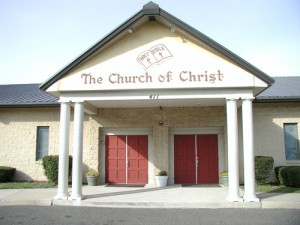Most baseball experts  and historians today are debating the place in baseball lore of Josh Hamilton’s Tuesday night in Baltimore. The Rangers slugger hit four home runs against the O’s last night, drove in eight runs, hit for a total of 18 bases, and mixed in a double for good measure. He went five-for-five with no outs as Texas racked up its 20th win of the year and reclaimed the best record in the major leagues. Sports Illustrated’s Cliff Corcoran has written an excellent article that details Josh’s night and compares it with every other four homerun performance in baseball history. Click here to read Corcoran’s case for Hamilton’s heroics to be classified as the second best hitter’s night ever.
and historians today are debating the place in baseball lore of Josh Hamilton’s Tuesday night in Baltimore. The Rangers slugger hit four home runs against the O’s last night, drove in eight runs, hit for a total of 18 bases, and mixed in a double for good measure. He went five-for-five with no outs as Texas racked up its 20th win of the year and reclaimed the best record in the major leagues. Sports Illustrated’s Cliff Corcoran has written an excellent article that details Josh’s night and compares it with every other four homerun performance in baseball history. Click here to read Corcoran’s case for Hamilton’s heroics to be classified as the second best hitter’s night ever.
~~~~~~~~~~~~~
 In the 16th chapter of Leroy Garrett’s “What Must the Church of Christ Do to Be Saved?” he presses for more imagination, more risk, more innovation, more change in the way we are the Church. He complains, perhaps a bit too harshly, about our “boring, lifeless, gloomy” worship assemblies and, by implication, blames our declining numbers on our lack of joy and excitement. By pointing right at our Sunday assemblies right at the beginning of the chapter, Garrett probably causes the reader to focus on the wrong thing and actually miss his main point. I think Garrett’s main objective is to encourage joyful and exciting shifts in the ways we are church, not in the ways we do worship services. Although, the two paragraphs following his initial indictment certainly speak to all of our church life, not just what we do together on Sunday mornings:
In the 16th chapter of Leroy Garrett’s “What Must the Church of Christ Do to Be Saved?” he presses for more imagination, more risk, more innovation, more change in the way we are the Church. He complains, perhaps a bit too harshly, about our “boring, lifeless, gloomy” worship assemblies and, by implication, blames our declining numbers on our lack of joy and excitement. By pointing right at our Sunday assemblies right at the beginning of the chapter, Garrett probably causes the reader to focus on the wrong thing and actually miss his main point. I think Garrett’s main objective is to encourage joyful and exciting shifts in the ways we are church, not in the ways we do worship services. Although, the two paragraphs following his initial indictment certainly speak to all of our church life, not just what we do together on Sunday mornings:
At the heart of our problem is that we are caught in the trappings of our own institutionalism — or churchism might be the word. We have expensive edifices to pay for and to maintain, staffs to support, programs to fund. Our Achilles heel is the System. The System resists change, except occasional cosmetic change. Nothing real or substantial. The System demands conformity, and it is uneasy with thinking people around, especially a thinking preacher or a preacher that says something.
The System must maintain the status quo, and it must preserve itself at all cost. This is why it seeks to keep everyone satisfied by reacting rather than acting. And most significantly, the System is tied to the building. Regular church attendance, along with generous giving, is the essence of “faithfulness.”
This brings me to the one thing above most everything else that we must do to be saved. We must recover — or is it discover? — the great lost secret of primitive Christianity. That secret was the dynamic of joyous, Spirit-filled gatherings in homes.
Garrett is definitely speaking my language when he’s talking small groups.
If our salvation is tied directly to the Holy Spirit working in our lives to transform us more and more into the image of Christ — and it is! — churches should be in the business of teaching this transformation. This imitating Christ and becoming more like Christ should drive everything we do as a church. We should be all about planning the settings and fostering the atmospheres for this transformation to more easily and quickly take place. Where in your church do you and other members become more like Jesus? What program or setting in your church encourages self-sacrifice, considering the needs of others more important than your own, true community and fellowship, compassion and love and service? Which program or setting fosters Christian family where honesty and transparency are the norm and where burdens are shared? Which setting communicates accountability to one another, mutual responsibilities to one another, where we all rejoice and mourn with one another as equal members of the Lord’s Body? Which program more accurately reflects the gospel image of one people around the one table, fellowshiping with one another and with our Lord? It’s our small groups!
This kind of relationship and fellowship doesn’t happen in our ordered Sunday morning worship assemblies where, for the most part, we sit in neat rows and stare at the backs of each other’s heads while focusing our attention on one screen or one speaker. There’s more fellowship happening when you pass a hot dog to a stranger at a baseball game than when you pass the blood of Jesus to your brother in Christ at most Sunday morning gatherings. It doesn’t happen in our Bible classes either, not like it happens in smaller groups in our homes.
I’ll never get to know you — to really know you — if I never share a meal with you or spend time with you in your home. It’s in your home where I read the cartoons on your refrigerator and see the pictures of your children in the hall. You’ll never be completely honest with me and I’ll never be totally transparent with you until we get to know and trust one another. I can pray for you in Bible class when you add your name to the list. But I can’t really bear your burdens for you — with you — until I experience them with you together in our homes.
There’s more freedom to be spontaneous in our living rooms where the order of worship isn’t printed and distributed beforehand and the PowerPoint slides aren’t already in order. There’s more opportunity for Christian hospitality and serving one another where meals are shared and chores are assigned and kids are corralled. There’s more time for true testimony, more allowance for joyful laughter and even making fun of ourselves, and more room for tough questions and even periods of doubt.
These small groups are also ideal for friendship evangelism. Outsiders can often be introduced to spiritual things in the informal atmosphere of a private home rather than in a church setting. The joy and spontaneity of the home gatherings can also transfer to some degree to the public assemblies if only we will be less rigid. When are services are revved up and there is “a sweet spirit that fills this place” we will be more inclined to share it with others. Who wants to invite a friend to a boring service?
I’m a huge believer in regular small groups. I think our small groups do more for actual Christian transformation than our Sunday morning worship assemblies and our Bible classes combined. Yes, small groups are hard. They’re time-consuming. They’re energy-draining. They require a pouring out of oneself for the sake of others. Small groups demand personal sacrifice for the benefit of the whole. They call for commitment; they command sharing; they impose honesty and accountability. Small groups demand that we model compassion, that we forgive, and that we love. Does that sound like a Savior you know?
Peace,
Allan
Leave a Reply